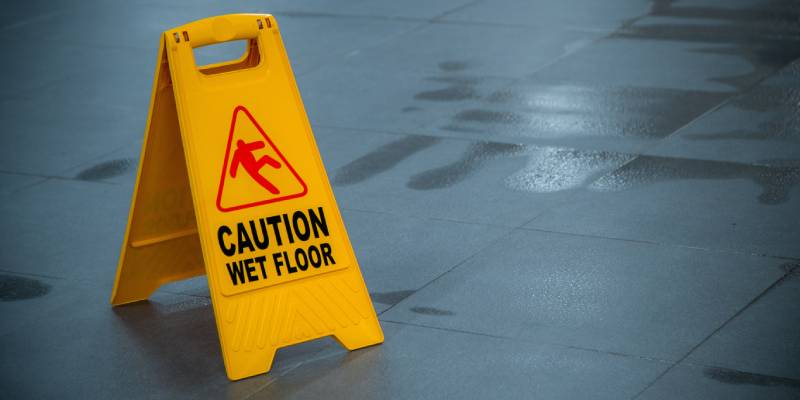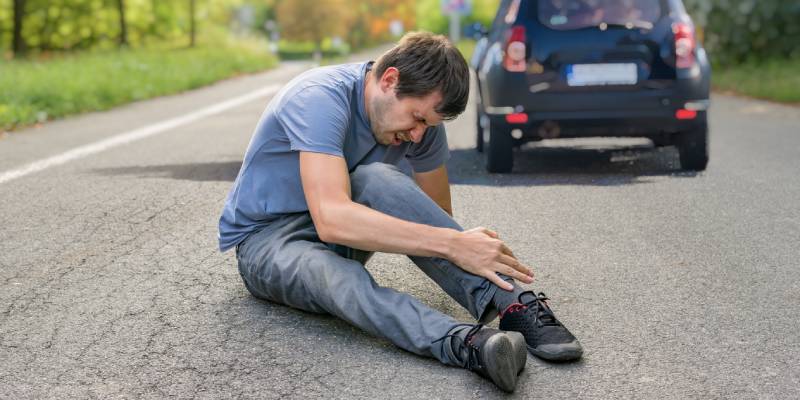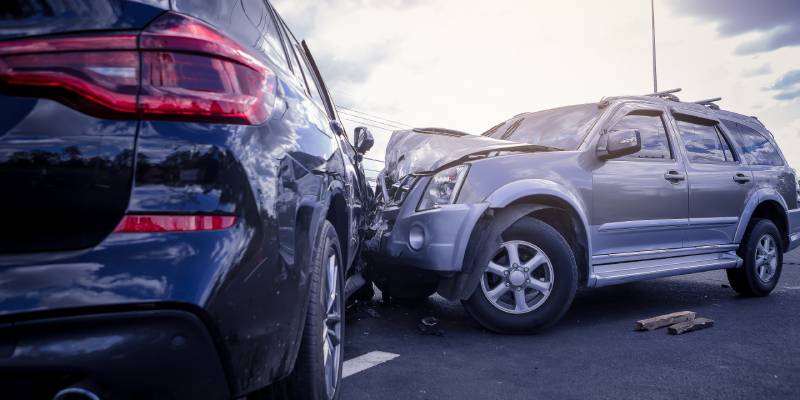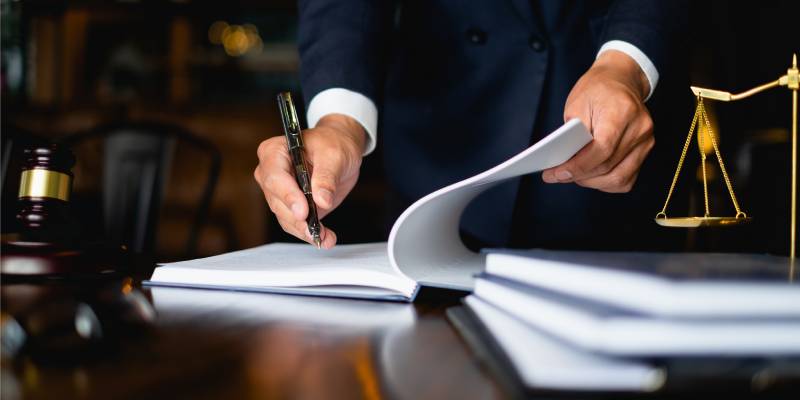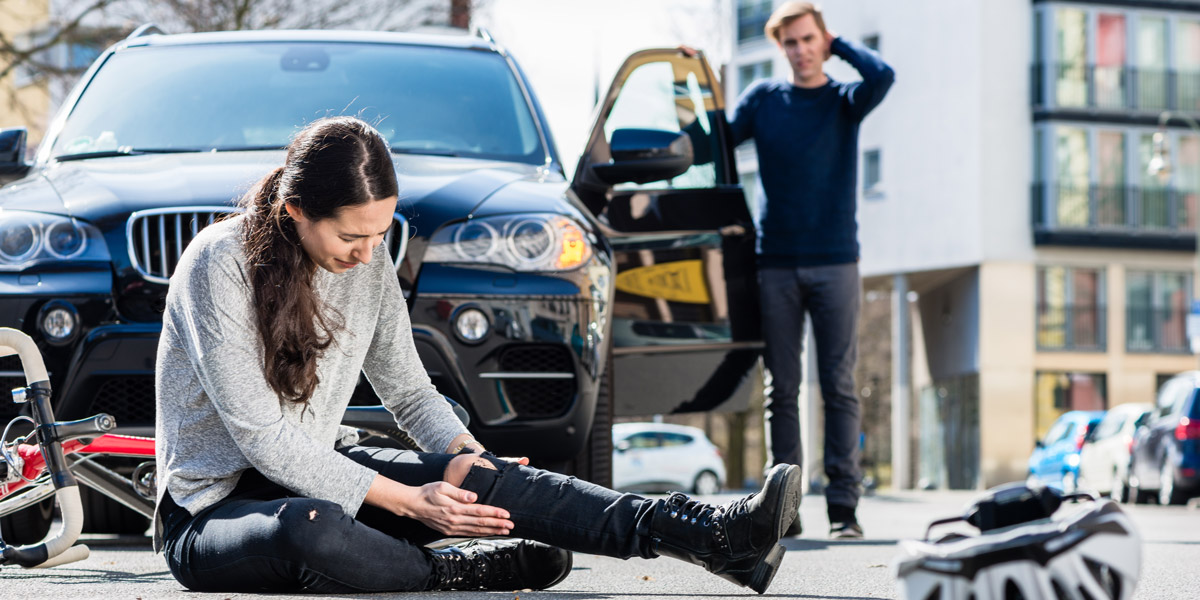Slip and fall accidents are more than just painful. In some cases, they can be completely debilitating. From fractured bones to head trauma or spinal cord injuries, one misplaced step is all it takes to change a life.
If you or a loved one is dealing with a slip and fall injury that is the direct result of somebody else’s negligence, then you might be entitled to compensation. Though it may feel overwhelming to pursue a legal battle while in recovery, seeking damages could take stress off of your shoulders by helping with hospital bills and other injury-related costs.
At OlsenDaines, we strive to make the legal process easy and straightforward so you can focus on getting better. To help you determine your next steps, here’s a guide on how slip and fall injury cases work and what you can expect when filing a claim:
What Is a Slip and Fall Claim?
A “slip and fall” claim is a specific type of personal injury case. The purpose of the claim is to help individuals recover damages – typically monetary compensation – after sustaining injury while slipping or tripping on somebody else’s property. However, not every accident justifies a slip and fall claim. For a successful case, you must be able to demonstrate these main points:
- The property owner had a responsibility to keep the property reasonably safe
- The property owner failed to meet that responsibility through negligence
- Your injury was the direct result of their negligence
- You suffered damages because of your injury
If you believe your situation meets all of those criteria, you should contact a personal injury attorney for assistance as soon as possible. They will be able to examine your situation closely and help you through each stage of the claims process. Read on to learn more about what to expect when beginning a slip and fall legal case.
Proving a Slip and Fall Claim
Perhaps the most challenging aspect of any personal injury claim is proving liability. Slip and fall cases are no different, and there are a few different things you will need to consider when trying to prove that your injury was caused by somebody else’s negligence:
“Duty of Care” and Premises Liability Law
Premises liability laws state that property owners owe a “duty of care” to people who visit their land. In other words, these rules hold property owners accountable for keeping their space adequately safe at all times. However, their level of responsibility largely depends on your status as a visitor:
- Business invitees are individuals who are invited onto the property to conduct business – for example, visiting a grocery store or a mall. Property owners owe these types of visitors the highest duty of care. Generally, this means the owner is responsible for routinely inspecting their space for potential hazards and quickly remedying or notifying visitors of any possible safety concerns.
- Licensees and social guests are individuals who visit the property with the owner’s consent, but not for business. Property owners still owe duty of care to these visitors but are not required to frequently monitor their space on the same level as a business owner. Typically they are responsible for remedying or warning visitors of known hazards.
- Trespassers are individuals who illegally enter the property without the owner’s consent. Trespassers are not owed any duty of care, which means the property owner will not be liable for any injuries sustained on their land.
What Qualifies as Negligence in a Slip and Fall Case?
Once we prove that the property owner owed you a duty of care, we will need to demonstrate that they failed to fulfill that duty. To put it differently, we’ll have to show that they ignored or failed to notice a safety hazard that directly led to your injury. This step will look different for every case, though some of the most common examples of negligence include:
- Loose or broken floorboards
- Cluttered walkways
- Parking lot potholes
- Torn or loose carpeting
- Uneven steps or stairs
- Oily, waxy, or wet floors
- Low lighting or visibility
- Lack of safety signage
If your injury was caused by a similar safety hazard that you received no warning about, then the property owner is likely liable for the accident. Not sure if your situation qualifies? Don’t worry – our attorneys can help answer all of your questions. Just give us a call to schedule your free legal consultation.
Tips for a Successful Slip and Fall Case
Proving a slip and fall case can be very tricky depending on your unique situation. However, we have some advice that can make the process a lot easier and faster. If you are planning to file a slip and fall claim, consider these tips:
- Seek medical attention right away: After sustaining an injury, health should be your top priority. Visit a doctor immediately after the accident to assess, treat, and document any injuries that were caused by the accident.
- Document as much as you can: Once you are safe and able, write down as much information as you can. Collect the names, addresses, and phone numbers of potential witnesses. Write the date, time, and exact location of the accident.
- If possible, take pictures of the scene: Though this may not be entirely possible in every situation, pictures of the exact location where your injury took place will help your case immensely. Try to capture a few that show what your perspective looked like as you approached the safety hazard.
- Avoid posting on social media: Social media is a big part of our lives, and it may be tempting to continuously share everything online. However, your posts can be used against you – even if they don’t directly relate to your accident. For example, if you are claiming that the injury caused serious emotional distress but are posting about a party, it would be much harder to prove your case.
- Keep all of your medical and treatment documents: Don’t throw away any paperwork from doctors, physical therapists, massage therapists, or any other health professionals that you visit following your injury. Their reports and invoices will help you build a solid case and request an accurate amount in damages.
- Note any days you miss from work: Keep a record of any hours that you had to take off work as a result of the injury. Include any instances where you had to leave early for recovery-related reasons such as medical visits or therapy appointments.
- Don’t wait too long to start your case: In the state of Oregon, personal injury cases must be filed within two years of the date of injury. Failing to meet this deadline will prevent you from recovering damages at all.
Contact an Experienced Personal Injury Attorney
Slip and fall accidents are unpredictable, and they can be incredibly stressful to recover from. At OlsenDaines, our slip and fall accident attorneys are dedicated to helping you heal in peace by guiding you through the claims process. With over 40 years of experience in Oregon law, we know how to deliver favorable outcomes for our clients. To get started, schedule your free legal consultation today.

